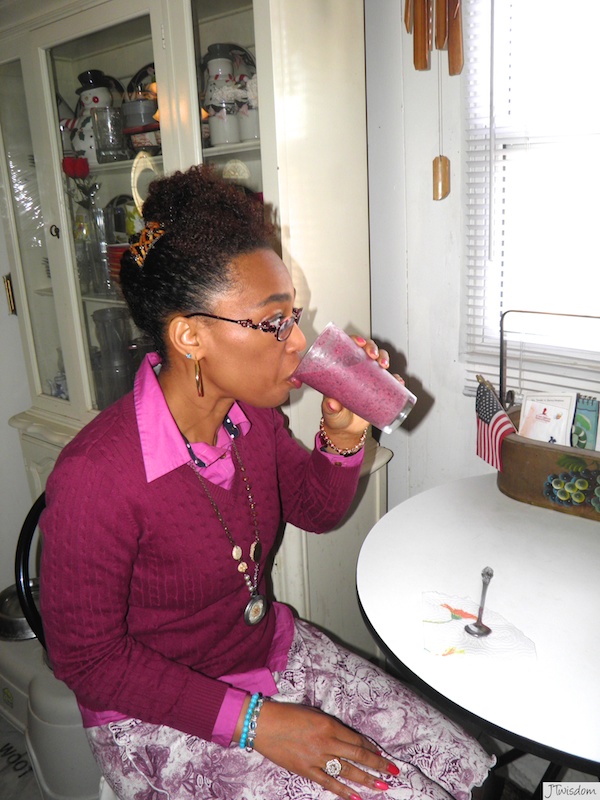by | Jun 18, 2019 | Fitness |
At the beginning of every year, we may find ourselves promising new year’s resolutions. You might want to improve your money situation or get a better job. But for many, the resolutions are solely focused on health, fitness, and getting a body that you are happy with. Some people forget, and then reignite this focus towards summer. Wanting the bikini or beach body, whatever that may be. But, it shouldn’t just be a one time focus. Getting lean and healthy is a great way to live your life, all year round. So here are some of the ways that you can get a healthier lifestyle starting today.

Think about your diet
When people think about their diet, it might be for one reason, and that may be to lose weight. While, of course, it’s important to maintain a healthy weight for your height, it shouldn’t be about losing the pounds fast for materialistic reasons. A diet should be developed with your health in mind. This is why crazy diets often work in the short-term, but never last beyond you actually doing the diet. Your body needs all of the food groups to nourish itself in different ways, which is why you need the likes of carbohydrates for energy, protein, and other vitamins and minerals. It’s all about balance, which is why it’s best to ensure that you eat a variety of foods, and even enjoy your treat meals and sweets in moderation.
Find an exercise you enjoy doing
Too often people jump right into a fitness regime, purely to lose weight or increase their fitness levels, but the enthusiasm can fade after a while. The biggest reason for this is that you don’t enjoy the exercise you are doing. It’s vital that you have passion and enjoyment from it or can see the benefits you are getting which will ultimately encourage you to keep on going. Try out different things. Look at workouts on Youtube, try alternative exercises like joining pilates classes or consider yoga. Maybe even join a gym if you like the environment, or just heading out for a run a few times a week. Find something you enjoy doing, then stick with it. You will find it much easier when you see the results, and actually look forward to the exercise.
Don’t forget about your mental well-being
Finally, too many times we can neglect our mental well-being, but this is just as important as all the physical stuff. Our mindset can determine everything we do. The food we eat and the exercise, or lack of, that we take and implement into our lives. Having a negative thought process is just as bad as not eating the right things and failing to exercise. So take better care of your mind and feel the difference it can make. It is important to identify exactly where you are at mentally, so work out if you are more negative or positive, and then build upon it. Negative thoughts can be overcome by actively making them positive. It can feel forced at first, but as you develop new habits of positive thinking you will begin to see the difference.
Let’s hope that these tips help you when it comes to a healthier lifestyle.
by | Mar 19, 2019 | Fitness |
When it comes to your health and your lifestyle, we can often leave ourselves slow on the priority list. You may have children you dedicate your time, a relationship that needs your attention, a job that requires your dedication, and a home that needs looking after. There is always something that is going to take your attentions away and have you busy, but the truth is, your body, your mind, and your health are extremely important. Without those things, the rest doesn’t exist.
Of course, it can be hard to make yourself a priority, after all, there are no further hours in the day, but there are changes in habits and things you can do that can make a big difference. So here are some of the ways that you can take better care of yourself. Let’s hope it gives you the boost you need to still be able to do everything else at 100% momentum.
 Image source
Image source
Think about your diet
One of the first things you should make a priority is what you put into your body in terms of the food and the drink your consume. There is no denying that if you nourish your body with good things, such as fruit and vegetables, a balanced diet, with plenty of water, then your body is going to function as it should and feel fantastic. There is a lot of connection to how you feel in terms of energy and mood with the food and drink you consume. So next time you don’t feel right, start with the food you have consumed and you may be able to understand why. It isn’t about staying on a diet, it is more about getting the balance right and grieving your body exactly what it needs to function. You can do this without any mega change to your lifestyle, you just make better choices.
Take more exercise
Exercise is over of those things that we all know we should do a little more of, but finding the time top head to the gym and workout can just be too overwhelming. However, you can make a choice to be more active. You could do things such as parking the car a little further away so you increase your steps in the day. Choosing to take the stairs instead of a life. Or maybe getting up a little earlier in the morning and doing a workout at home. These things can really help you when it comes to being more active, and doesn’t mean expensive gym memberships or huge sacrifices of time.
 Image source
Image source
Get those things checked out
Sometimes we can fall short when it comes to getting things checked out. We know we should keep up with regularly check ups, but then only tend to do something about it if a problem occurs. Your eyes, for example, can change over time, so while you may be using a prescription now, that might not cover you for two years down the line as your eyes can get better for deteriorate. The same can be said for your hearing, it is always worth getting checked out, but tend to only do something if yearling loss occurs or there is a blockage of wax which then means you need to see an audiologist. Lastly, a big thing as a female is to have regularly gynecology checks. These things can spot the early signs of infection and other worst case scenarios like cancer, and yet so many women don’t keep up with the checks through fear. It is time to stick with the regular appointment schedules, better to be safe than sorry.
It is all in the mind
Your mindset can play a big role in how you feel day to day, and so it might be time to try and change up some of the habits you have developed that could be more centered around negativity than anything else. Maybe it is time to be more aware of that internal voice, and start making more of what you can do to make positive changes in your life. It could be focused around positive thoughts, or gratitude for the things you have and what is going well for you. Changes in your habits can really make a big difference to your output in life day to day.
Take time out for self care
Finally, make sure you take some time out for some self care, it can make a big difference to how you feel by just having those moments for you. Whether that is a shower or a hot bath, or it might be an early night so you can read your book. It is important to recharge those batteries in any way that you like to help you feel good and rested for everything else you need to do.
Let’s hope that these tips help you to take better care of yourself.
by | Mar 18, 2019 | Fitness |

Image viaPixabay
It’s probably fair to say, that most people are a bit wary of getting older. After all, why else would there be such a thriving industry for assorted beauty products that promise to keep us looking as young as possible, for as long as possible? And why would modern popular culture place such an emphasis on youth, whether via film, music, or advertising?
While getting more wrinkly with time may not be to everyone’s tastes, falling victim to age-related cognitive decline is a nightmare scenario that anyone would go to great lengths to avoid.
Unfortunately, it’s not always clear what causes cognitive decline, and there are many different proposed mechanisms and patterns that can increase your risk of suffering from dementia and related conditions as you age. To give a weird example – some research suggests that there may be a certain connection between age-related hearing loss, and age-related dementia.
All the same, there are certain lifestyle practices that are widely agreed to be able to do some good in helping to mitigate your risks of developing cognitive decline as you age.
Here are a few lifestyle tips that may protect you from this unwelcome condition.
Fast occasionally
Throughout human history, in all kinds of different places, and at all kinds of different times, people have practiced regular fasting either intentionally or unintentionally.
“Unintentionally,” because food has never been as abundant as it is today, and many people had to contend with extended periods of hunger throughout the ages. “Intentionally,” because a huge number of groups throughout history have seen religious or ritual value in abstaining from food deliberately for a period of time.
Modern research has shown that fasting can actually have some pretty profound health benefits, and may protect cognitive function as well.
When we fast – that is, willingly go without eating – for an extended period of time (in the region of 24 hours, for example) a process known as “autophagy” is triggered throughout the body. Autophagy, simply put, is a process where the body breaks down and “eats” damaged or redundant tissue, which is then replaced by new, healthy tissue after the fast.
Autophagy is thought to be deeply connected to good overall health, and it’s been argued that it can help to reduce the risk of certain cancers (and maybe fight certain cancers as well), improve overall immune function, and more. At least one research paper has noted that fasting induces “profound neuronal autophagy” in the brain – something that researchers are working around the clock to create a drug to accomplish.
So, fasting occasionally – maybe for one or two days a week – might be an effective way of working to protect your cognitive health. Just don’t overdo it; your body does need food, after all.
Get an intense exercise session in once a week
A lot of people, when they exercise, will go for the traditional “aerobic” workouts that we tend to think of as “cardio” exercise. In other words, jogging, cycling on a stationary exercise bike, and all that sort of thing.
According to the doctor Doug McGuff, however, in his book “Body by Science,” this type of exercise is deeply inefficient, fails to achieve many of the most important benefits of exercise, and can lead to repetitive strain injury.
According to McGuff, doing an ultra-slow, ultra-intense, short once-per-week weight training routine is the real ticket to fitness and good health. Among other things, this is because training in this manner apparently trains and stimulates all the different elements of the metabolism, which makes the body more efficient, and reduces the risk of a buildup of undesirable byproducts that can harm cognitive health as well as organ health.
If the good doctor is right, doing a once-per-week ultra-intense session, along with his guidelines, may keep your body’s machinery working properly, and help to protect your cognitive health as you age.
Stay mentally engaged, and commit to constantly learning and developing new skills
Norman Doidge, neuroscientist, and author of the book “The Brain that Changes Itself,” argues that the brain essentially responds to demand, and keeps generating new tissue and rejuvenating itself, if you have a mentally active enough lifestyle.
To a large extent, this means continually engaging in learning and developing new skills as you get older, rather than simply sticking with whatever routines or hobbies you might have learned years ago.
A good approach here could be to get involved in new hobbies, stick with each one for a year or two, and then change your main focus to something else. Just stay busy, and stay curious. Your mind may do much better because of it.
by | Feb 26, 2019 | Fitness, From the Heart |
Sometimes, it’s as little as the beginning of a new year or a new season that make us want to take a bit better care of our health. Other times, however, we need a major wake up call in order to change our habits – but, as long as you’re able to focus on the road ahead, your chances of changing your ways are quite high.
 Image via: Fresh and Lean
Image via: Fresh and Lean
Getting rid of bad habits and leading a much healthier life than you used to can be a challenge, though, and make people before you have fallen back into their old ways despite a former health scare.
Here is a handful of ways to make sure that you’re able to stick to your goals and keep your eyes on the price. It just makes it a bit easier to stay positive and happy about the future.
First: Replacing your bad habits
You won’t be able to quit a bad habit unless you have something to fill the void with; it’s that simple. While some people encourage you to have a glass of water every time you feel like having a cigarette, for example, a bigger lifestyle change is in order to make you turn away from your harmful habits.
Focus on exercise, for example, and join a jogging team in order to improve your health. It will feel almost impossible, to begin with, but sooner or later you’ll crave that dopamine that a good run gives and you certainly don’t want to ruin your lungs by having a cigarette either.
You can have a look at Inspire in case you’re a cancer survivor to find just a bit more inspiration and encouragement.
Next: Start a healthy routine
Sure, a good run now and then might make you feel like you’re heading somewhere – but, unless you manage to stick with it, you’ll quickly fall back into your old ways. A great way to ensure that you’re keeping track of your effort and get a sense of reward from your hard work is to keep a health diary.
Start by tracking what you eat, for example, as well as the hours you put into exercising and make a habit out of writing down your mood as well. How does it make you feel, where do you think you’ll be able to be in a few weeks from now, and how can you encourage yourself in the future?
Remember to reward yourself
This brings us to our final point; rewarding yourself after a good exercise, a proper portion of self-control or a day free of sugar is going to help you a lot along the way. Don’t be afraid to use food as an encouragement, by the way, unless you’re trying to lose weight, of course.
If this is the case, you might want to take yourself out on a shopping trip, tap yourself a nice and long bath, and just turn off the outside world for a bit. Every bit of reward and encouragement is going to tune your brain into preferring your new and healthy habits so keep up the good work.
by | Jan 29, 2019 | Fitness |
Health is such an over-discussed topic that we can analyze it until we are blue in the face! We can live one type of diet, and find that it’s completely wrong for us. And for those people that really think they’re living a healthy lifestyle, but they seem to feel terrible all the time, is it about undergoing a certain regime or is it about something completely different? Let’s try and unravel the health fundamentals we all need in which to thrive every day.

JTwisdom
Drink Your Water!
Yes, it is pretty obvious, but when we live such a busy lifestyle, we can forget to give our bodies an adequate amount of H2O. Water makes up approximately 60% of our bodies, and not only is it great for your internal organs, but it can make a big difference to your skin and you will notice the difference when you are dehydrated. For most people that feel sluggish, we need to ask themselves if they are hydrating efficiently. It’s not a very difficult thing to keep on top of, but if you are very busy, here are some of the best water drinking apps to ensure you get your minimum of 1.5 liters a day. And for those that exercise and sweat a lot, it’s even more!
Moving As Much As You Can
Depending on how much you weigh, you may need to move around more, but if you live a sedentary lifestyle, and commute to the office, before sitting down all day, don’t be surprised that when you hit 40, everything starts to hurt a little bit more! We all need to get up and move around a lot more, and this isn’t a very difficult thing to do, but we need to actively look at if we’re doing enough to get that heart pumping. If we don’t, then we have to take some extra steps, metaphorically and literally!
Looking At Your Happiness
Your health isn’t just your skin and your organs and your muscles, but it’s that grey matter in between your ears. To be healthy, it’s not just enough to go to the gym, but to thrive each and every day, especially in a busy world, we need to ensure that we are of sound mind. And of course, there is no such thing as normal, but we need to feel comfortable in our own skin so that we can enjoy every day the way it was meant to be. Stress and anxiety are so common now that we all feel that we’re thinking outside of our heads. We have numerous pressures placed on us, and it’s hardly a surprise that mental health issues are so widely discussed. Learning how to be happy isn’t an overnight fix, but by adding little changes to your life, you can feel the benefits.
We can overthink diet and exercise, but when we want to function on a basic level every single day, we have to listen to our bodies and minds, but understand the fundamentals that keep us functioning.
by | Jan 8, 2019 | Fitness |
If you’ve made a promise to yourself to make healthier choices in 2019 it’s likely that you’ve done so with certain goals in mind. Maybe you want to reach a target weight or perhaps you want to look incredible in a very special white dress this year. Whatever your goals, it’s common to assume that you can achieve them through sheer willpower alone. Yet, while you should absolutely be commended for your enthusiasm, excitement and force of will, sometimes even the most disciplined of us can make mistakes that derail our fitness goals.
Despite your zeal without the right help and guidance you can find yourself doing more harm than good. Indeed, in some cases the drive that propels you forward can actually also be what trips you up. Here we’ll take a look at some common diet and exercise mistakes that see even the most disciplined of us stray from the path towards the path to health, fitness and happiness…

Looking to the internet for guidance
Don’t get me wrong, the internet is a fantastic resource with a wealth of free and useful information. However, the sheer volume of information out there can be daunting and a lot of it is utterly contradictory, especially when it comes to diet and nutrition. One decorated nutritionist will tell you that carbs are anathema if you’re trying to get into shape, while others will tell you to steer clear of fats. Some will swear up and down that a vegan diet is the best diet for weight loss while others will try to convince you that you should be eating more meat and less of everything else.
If you rely solely on online guidance you could well find yourself bamboozled. There’s really no substitute for entrusting your journey to a personal trainer. They will take the time to get to know your body and determine which exercises and meal plan will be the best for you. Moreover, they’ll be able to give you the ongoing support and guidance to keep you motivated when you start to flag.
Not having fun
If your exercise routine bores you… Change it! There’s nothing more counterproductive than slogging through an exercise routine that’s neither fun nor enjoyable. Whatever your goals, you should be able to find an exercise regimen that allows you to meet them without dreading heading to the gym. If the thought of working out fills you with dread, you’re far more likely to fall off the wagon. On the other hand if you have a varied and enjoyable exercise regimen that feels challenging while you’re doing it and rewarding when completed, you’re so much less reliant on willpower alone.
Find yourself a gym like www.clubfitness.us that has a varied selection of classes and activities. Not only will your regimen benefit from the variety, committing yourself to classes and taking part in shared exercises will help to ensure that you hit your targets.
Neglecting the weight room
If you’re trying to burn fat, it’s a common fallacy to assume that all of your time is best spent on the treadmill or the elliptical machine. Yet, while cardiovascular exercise is an undoubtedly important part of fat loss, it should also be supplemented with rigorous strength training. Strength training will help you to build lean muscle mass and tone to give your body more shape and sculpting. What’s more, strength training will increase bone density and boost your metabolism meaning that you burn more calories even when sedentary.
Many eschew strength training because they are worried about how they will look if their muscles get too big, but rarely is this something they need to seriously worry about. It is unusual for women in particular to gain heavy muscle mass because their low testosterone levels mean that they produce less Human Growth Hormone. No matter what your gender, weight, body type or personal goals, it’s highly unlikely that you will be able to achieve them if you abandon the weight room.
Assuming you can out-exercise a bad diet
It’s not uncommon, especially when we’re young and inexperienced, to assume that so long as we exercise regularly that we can afford to be lenient with our diet. The truth, however, is that you simply can’t out-exercise a bad diet. If you hit the gym 4 or 5 times a week yet subsist on fast food, ready meals and heavily processed convenience foods you will find it much, much harder to meet your goals. Yes, your body will get fitter and stronger, but because it isn’t getting the nutrients it needs it won’t get fitter and stronger at the rate that it should. Moreover, whatever gains you make will be hidden behind a veneer of fat because your body is taking in a high proportion of empty calories which it cannot put to good use and so it stores them as fat.
Starving your body of calories
That said, while you can’t achieve your fitness goals on a bad diet, you’re just as unlikely to achieve them by starving your body either. It seems as though with the coming of every new year the market becomes awash with dubious detoxes and spurious cleanses that make bold claims yet what results they are able to achieve are rarely sustainable. These “cleanses” invariably expect those who undertake them to massively reduce their caloric intake for a period of several days or even weeks.

Naturally, because the body finds itself with less energy than it needs to survive it cannibalizes the energy stored in your body as fat. Thus, these cleanses tend to produce quite dramatic results but they come as much too high a cost. Inevitably those who undertake these detoxes aren’t getting the calories they need so they find themselves feeling faint and lacking energy. They often also experience headaches and brain fog. They may become emotionally erratic and irritable. This is because the human body was simply not designed to function on the paltry 1000-1200 calories these “cleanses” insist on.
When you have so little energy that getting through day-to-day life seems impossible, you’re unlikely to have the energy to smash your workout goals.
Steer clear of these commonly made mistakes and you’ll find that you see in the next new year in the body you’ve always dreamed of!
FTC Disclaimer:
This is a collaborative post and may contain affiliate links.












Follow!